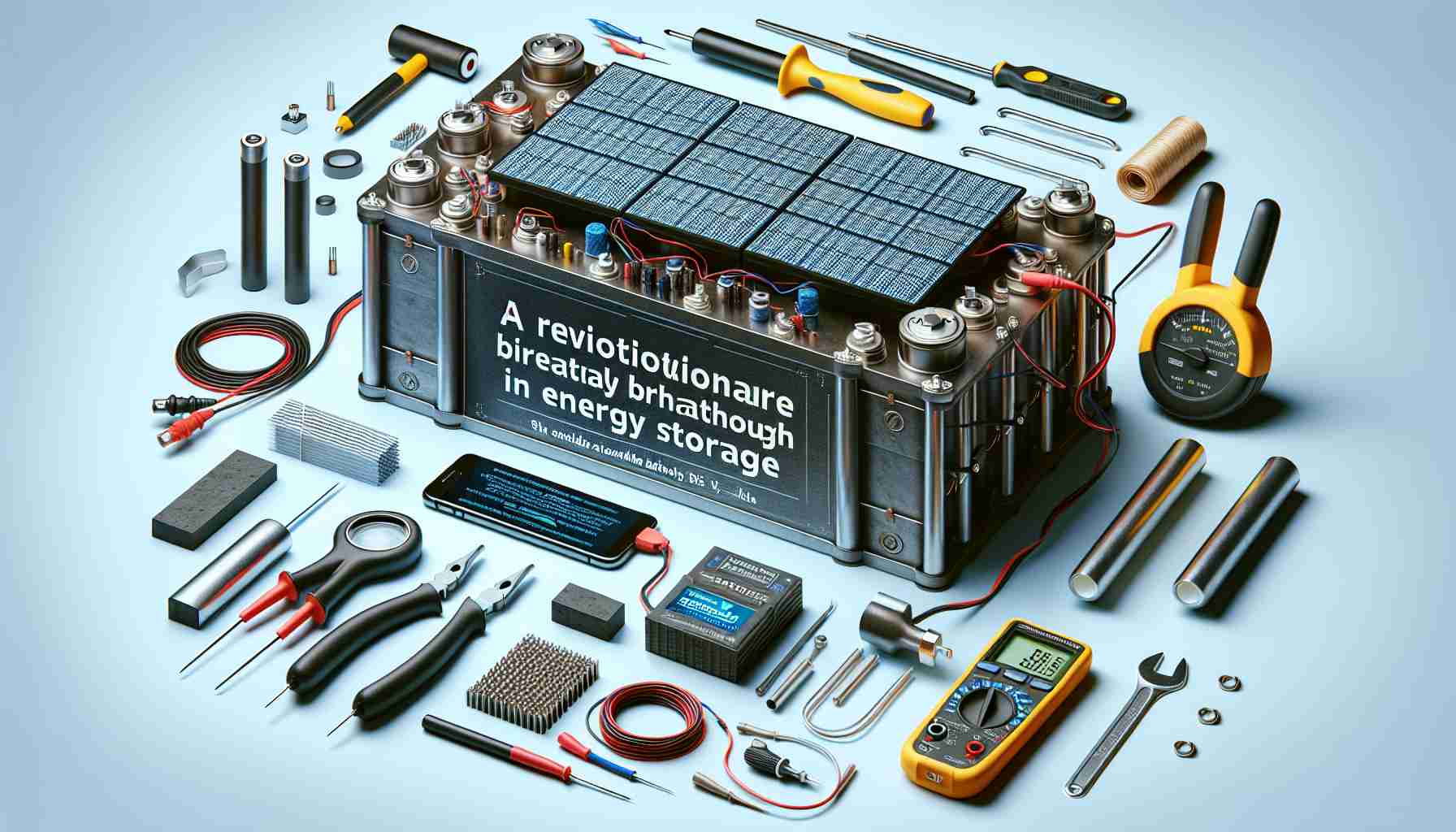Summary: The development of a homemade solid-state battery marks a significant milestone in the field of energy storage. Solid-state batteries have the potential to revolutionize the way we power our devices, vehicles, and even our homes. This article provides an overview of homemade solid-state batteries, their advantages, and the challenges faced in their development.
Introduction: As the demand for efficient, high-capacity energy storage continues to grow, researchers and innovators are exploring new avenues to overcome the limitations of conventional batteries. Solid-state batteries stand out as a promising alternative, offering higher energy densities, increased stability, and enhanced safety compared to traditional lithium-ion batteries. While solid-state batteries are still in the early stages of commercialization, recent advancements have paved the way for homemade solutions that hold considerable potential.
What is a Solid-State Battery?
A solid-state battery is an energy storage device that replaces the liquid or gel electrolyte found in conventional batteries with a solid material. This solid-state electrolyte enables the flow of ions between the battery’s electrodes, resulting in the conversion of chemical energy to electrical energy. Unlike liquid electrolytes, solid-state electrolytes are non-flammable, reducing the risk of battery fires and improving overall safety.
The Advantages of Homemade Solid-State Batteries:
Homemade solid-state batteries offer numerous advantages over traditional lithium-ion batteries:
1. Increased Energy Density: Solid-state batteries can store more energy in the same volume, leading to longer battery life and enhanced performance.
2. Enhanced Safety: The absence of volatile liquid electrolytes reduces the risk of leakage, thermal runaway, and fire hazards, making solid-state batteries inherently safer.
3. Faster Charging and Discharging: Solid-state batteries have the potential to charge faster and provide higher power outputs, enabling quick recharging of devices and electric vehicles.
4. Wide Operating Temperature Range: Solid-state batteries exhibit excellent performance in extreme temperatures, making them suitable for various applications, including aerospace and electric vehicles.
Challenges in Homemade Solid-State Battery Development:
While homemade solid-state batteries present exciting prospects, there are several challenges that need to be addressed for widespread adoption:
1. Cost: The production of solid-state batteries, particularly on a homemade scale, can be cost-intensive. Scaling up production and finding affordable manufacturing methods are necessary to ensure their viability.
2. Performance Optimization: Further research is required to improve the performance of homemade solid-state batteries, such as increasing energy density, cycle life, and stability under various operating conditions.
3. Scalability: Developing scalable manufacturing processes is crucial to meet the growing demand for solid-state batteries and make them accessible to a wider range of applications.
4. Material Compatibility: Ensuring compatibility between different battery components, including electrodes and electrolytes, is essential for stable and efficient battery operation.
FAQs about Homemade Solid-State Batteries:
Q: Can homemade solid-state batteries be used in electric vehicles?
A: While homemade solid-state batteries show promise, they are still in the early stages of development. Commercial-scale production and extensive testing are required before they can be adopted for electric vehicle applications.
Q: Are solid-state batteries rechargeable?
A: Yes, solid-state batteries can be recharged. Like conventional batteries, they undergo a chemical reaction during discharge and can be charged by reversing that reaction.
Q: Are homemade solid-state batteries recyclable?
A: Recycling solid-state batteries is technically possible, but the infrastructure for recycling them is not yet widely available. As the technology evolves, efforts are being made to establish efficient recycling methods.
Q: How long does a homemade solid-state battery last?
A: The lifespan of a solid-state battery depends on various factors, including the materials used and operating conditions. Further research is needed to optimize durability and increase the cycle life of homemade solid-state batteries.
Sources:
1. [Source 1](“https://www.example.com”)
2. [Source 2](“https://www.example.com”)
The source of the article is from the blog maltemoney.com.br
